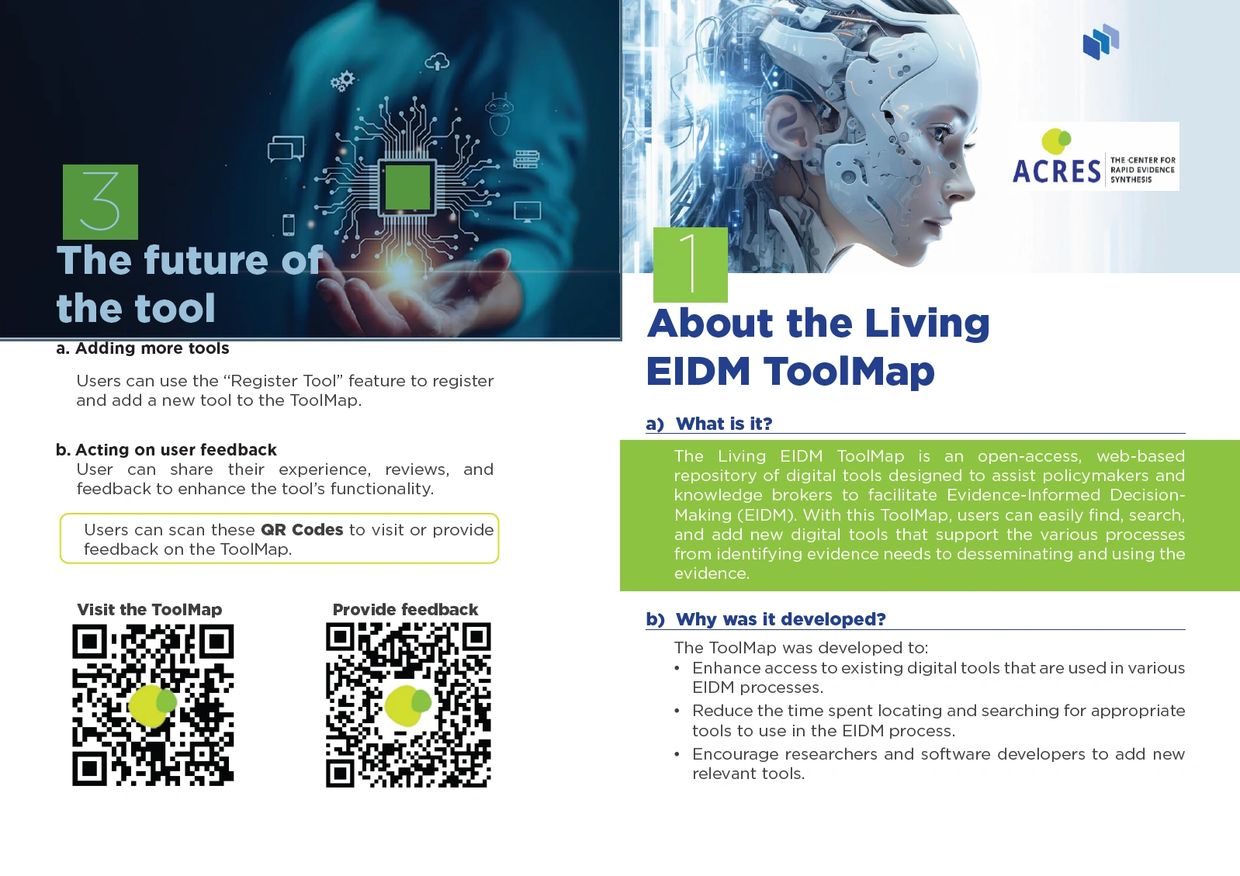
Digital Gender-inclusive Tools for Evidence Use (DG-Tools) project
The Digital Gender-inclusive Tools for Evidence Use (DG-Tools) project is a partnership led by the Pan-African Collective of Evidence (PACE) in South Africa and the Centre for Rapid Evidence Synthesis (ACRES) in Uganda. Together, we are exploring how digital tools can be integrated in data and evidence creation, mobilization, and use. The emphasis of DG Tool is developing tools to support knowledge brokers in their work to enhance decision-makers’ use of evidence. To this end, we are innovating digital solutions to develop more timely, effective, and equitable pathways for evidence to action and to inform decision-making for development impact. We will create a series of testable pilot programs to design, test, and evaluate how digital technology can be integrated in the data and evidence creation to use pathway and make recommendations for further investment of scale.
In the initial two years pilot phase (2024 and 2025), DG Tool is focussing on gender policy decision-making in Uganda, Ethiopia, and South Africa. The project is designed to support PACE and ACRES to further develop their thought leadership and institutional capacity to drive right-sized and appropriate technological innovation in the evidence to action sector. After year 1 of the project, we have developed three DG-Tools:
- ChatEIDM – developed by PACE.
- Data Extraction Tool – developed by ACRES
- Living EIDM Toolmap – developed by ACRES
ChatEIDM
What is it?
ChatEIDM is an innovative integration of an evidence map and a chatbot, designed to provide policymakers, researchers, and knowledge brokers with well-curated, accurate, and timely data. Trained on a robust dataset, ChatEIDM offers a seamless and intuitive platform for accessing evidence-based insights, empowering users to make informed decisions with confidence.
Why was the tool developed?
ChatEIDM was developed to bridge the gap between evidence and decision-making, ensuring that policymakers, researchers, and knowledge brokers have easy access to reliable, curated, and timely information. By integrating an evidence map with an intelligent chatbot, the tool addresses challenges such as information overload, difficulty in navigating complex data, and delays in accessing critical insights. Its purpose is to enhance the efficiency and effectiveness of evidence-informed decision-making processes, supporting better outcomes in policy and research.
Access ChatEIDM
Please download the file and then open it using the Chrome web browser.
Data Extraction Tool


Living EIDM Toolmap


This website uses cookies.
We use cookies to analyze website traffic and optimize your website experience. By accepting our use of cookies, your data will be aggregated with all other user data.
